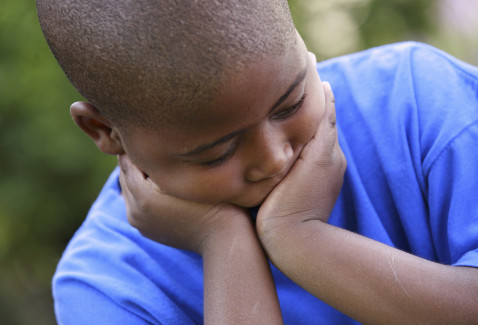
Is Addiction Hereditary?
If your parents or other relatives are addicts, you are at high risk of becoming addicted to drugs yourself if you begin abusing substances. This may be genetic, but another factor is that addicts and alcoholics have poor coping skills, and their inability to cope with stress in healthy ways is passed on to their children. When a parent is setting an example of reaching for chemicals to calm turbulent emotions, he or she is teaching children that that is what they should do when they feel unsettled or uncomfortable. Children may start to look for something outside themselves to make themselves feel better, and they may eventually turn to alcohol, drugs, food, sex or gambling.
Different Siblings, Different Reactions
Even though two or more children grow up in the same environment, they often come to different conclusions about their experiences and make different choices. While one child mimics and repeats a parent’s inability to cope with the stressors of life by turning to alcohol or drugs, another child in the same family may resist ever picking up a drink or a drug. Some children actually learn from their parents that relying on alcohol or drugs in an inappropriate way to cope with difficult times or stormy emotions is the wrong thing to do. These children make a conscious decision not to participate in abusing mind-altering substances because they don’t want to end up like their parents. In some families, drinking heavily is condoned and even expected. When most of the siblings participate in this behavior, it can be difficult for one sibling to stand alone and forgo alcohol. When you don’t drink and everyone else in your family does, you may end up feeling like an outsider.
Breaking Negative Cycles
It’s always possible to break negative cycles of addiction and failure to cope. No matter how many generations of drunks or addicts your family has had, you can make the decision to avoid becoming addicted, or you can choose to get help if you already are addicted. You can be the one to stop the cycle. Keep in mind that if you are abusing alcohol or drugs and you have children, they are watching you. You may believe you aren’t hurting anyone but yourself, but there are subtle ways of teaching your children that some emotions are too intense to deal with. Do you want your children to develop patterns of running from reality? Whatever damage was done to you by alcoholic parents, and whatever inappropriate coping skills you have passed on to your children up to now, it’s possible to heal. With support groups or counseling, you can learn to get past any hurt or resentment you may feel because of your parents’ addiction, and you can begin to show your own children healthier ways of coping. Addiction and alcoholism are often behaviors that are passed down from one generation to the next, but they are also behaviors that can be changed. If you have a problem with alcohol or drugs, talk to your doctor or an addiction specialist. Do it for your children if you are reluctant to do it for yourself. If you are hurting from the actions of your addicted parents, get help from Al-Anon or other support groups. Addiction in your family can stop with you.
